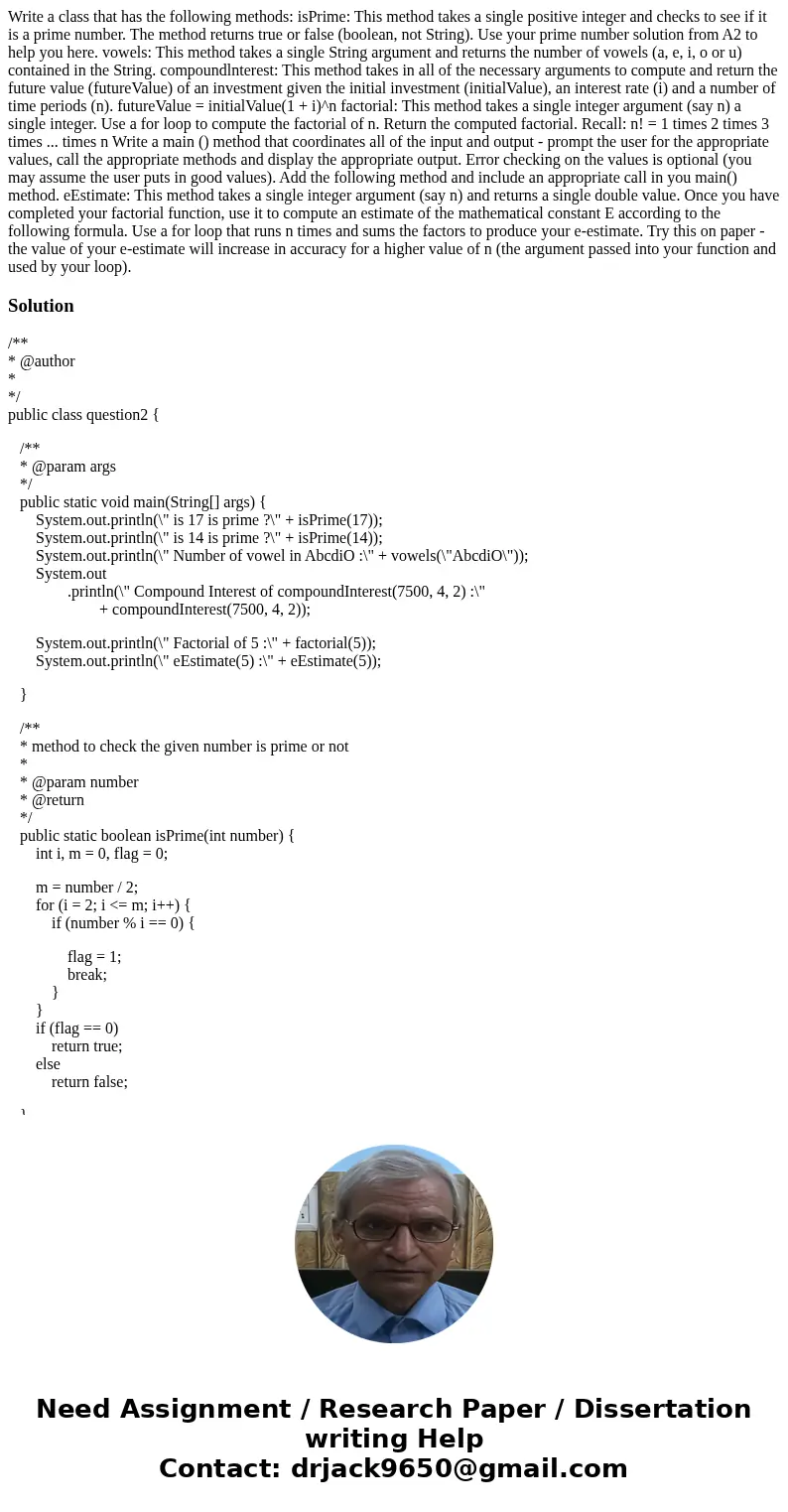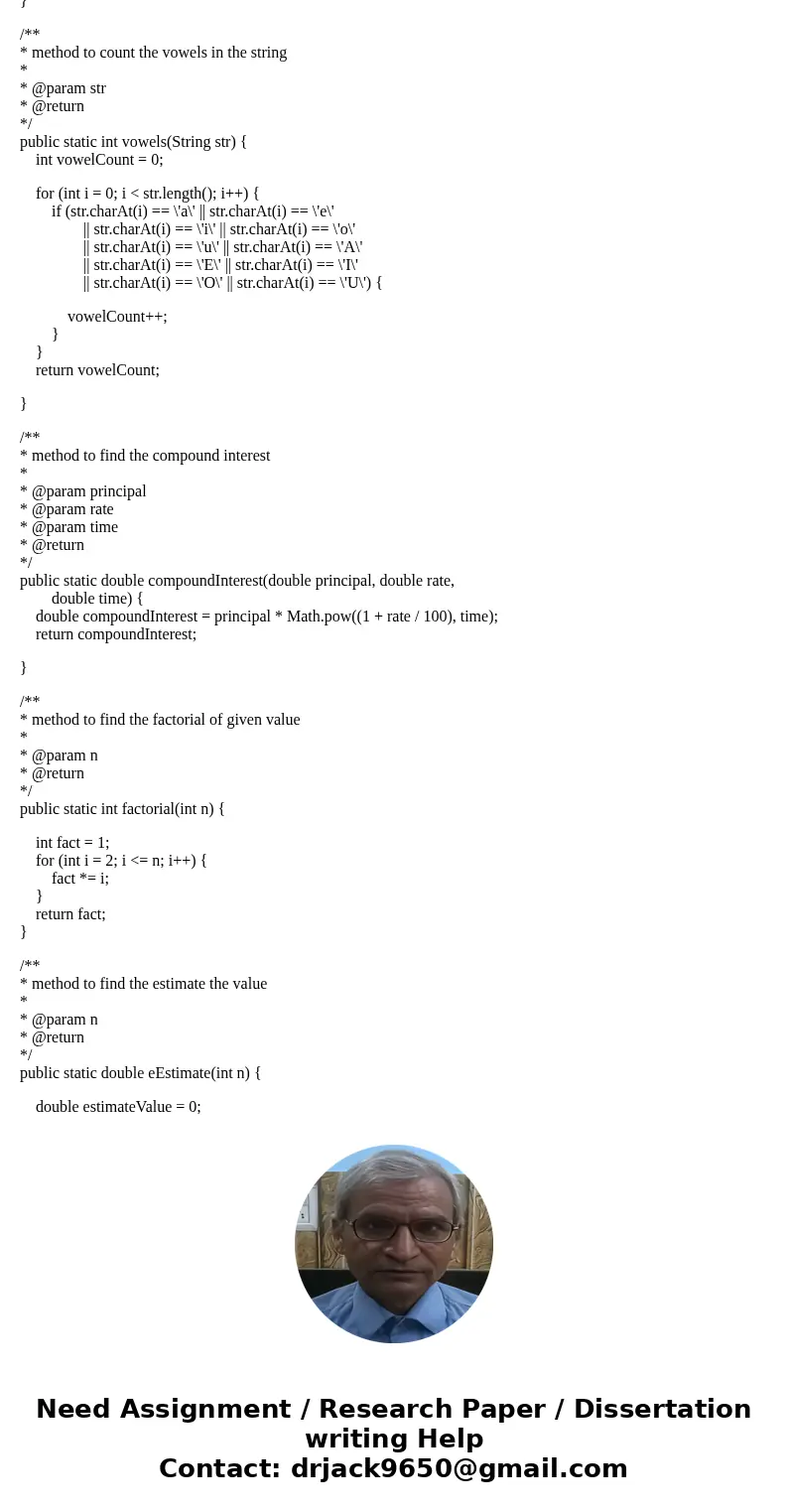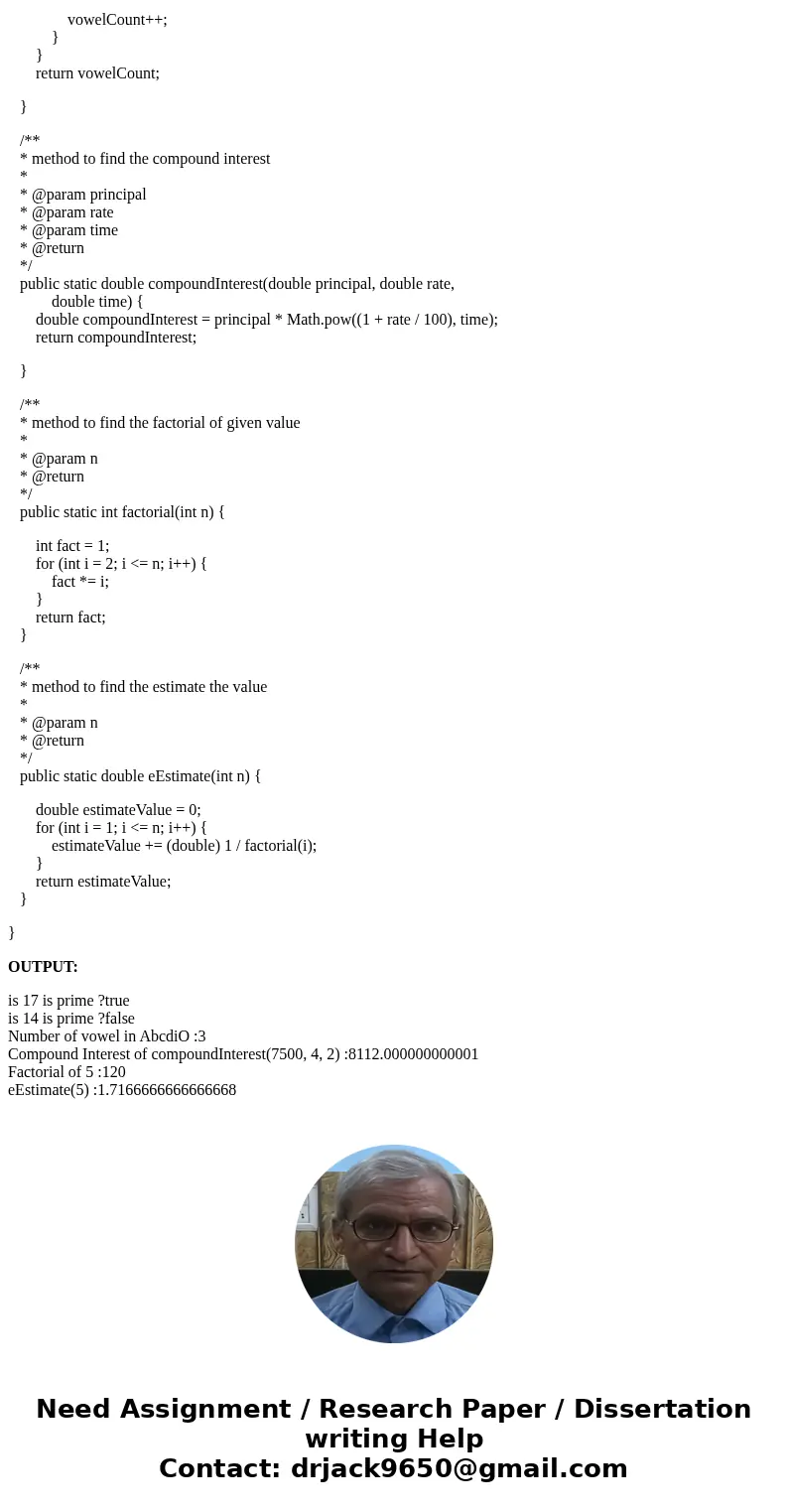Write a class that has the following methods isPrime This me
Solution
/**
* @author
*
*/
public class question2 {
/**
* @param args
*/
public static void main(String[] args) {
System.out.println(\" is 17 is prime ?\" + isPrime(17));
System.out.println(\" is 14 is prime ?\" + isPrime(14));
System.out.println(\" Number of vowel in AbcdiO :\" + vowels(\"AbcdiO\"));
System.out
.println(\" Compound Interest of compoundInterest(7500, 4, 2) :\"
+ compoundInterest(7500, 4, 2));
System.out.println(\" Factorial of 5 :\" + factorial(5));
System.out.println(\" eEstimate(5) :\" + eEstimate(5));
}
/**
* method to check the given number is prime or not
*
* @param number
* @return
*/
public static boolean isPrime(int number) {
int i, m = 0, flag = 0;
m = number / 2;
for (i = 2; i <= m; i++) {
if (number % i == 0) {
flag = 1;
break;
}
}
if (flag == 0)
return true;
else
return false;
}
/**
* method to count the vowels in the string
*
* @param str
* @return
*/
public static int vowels(String str) {
int vowelCount = 0;
for (int i = 0; i < str.length(); i++) {
if (str.charAt(i) == \'a\' || str.charAt(i) == \'e\'
|| str.charAt(i) == \'i\' || str.charAt(i) == \'o\'
|| str.charAt(i) == \'u\' || str.charAt(i) == \'A\'
|| str.charAt(i) == \'E\' || str.charAt(i) == \'I\'
|| str.charAt(i) == \'O\' || str.charAt(i) == \'U\') {
vowelCount++;
}
}
return vowelCount;
}
/**
* method to find the compound interest
*
* @param principal
* @param rate
* @param time
* @return
*/
public static double compoundInterest(double principal, double rate,
double time) {
double compoundInterest = principal * Math.pow((1 + rate / 100), time);
return compoundInterest;
}
/**
* method to find the factorial of given value
*
* @param n
* @return
*/
public static int factorial(int n) {
int fact = 1;
for (int i = 2; i <= n; i++) {
fact *= i;
}
return fact;
}
/**
* method to find the estimate the value
*
* @param n
* @return
*/
public static double eEstimate(int n) {
double estimateValue = 0;
for (int i = 1; i <= n; i++) {
estimateValue += (double) 1 / factorial(i);
}
return estimateValue;
}
}
OUTPUT:
is 17 is prime ?true
is 14 is prime ?false
Number of vowel in AbcdiO :3
Compound Interest of compoundInterest(7500, 4, 2) :8112.000000000001
Factorial of 5 :120
eEstimate(5) :1.7166666666666668



 Homework Sourse
Homework Sourse